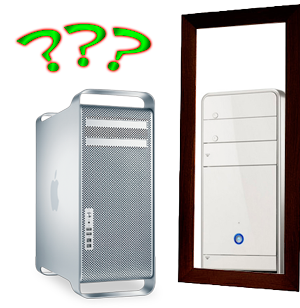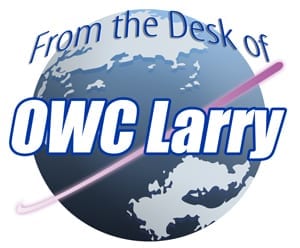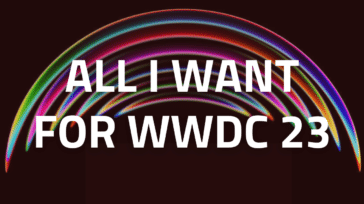 Let’s face it, the main reason for the ubiquity of Windows in the workplace is not due to any superior user interface or stability, it’s due to the cheap initial cost. It costs less to purchase a generic Windows box than it does to buy a Mac. A large part of that has to do with the fact there are hundreds of manufacturers churning out legit PC clones, but only one company makes legitimate Macs – Apple.
Let’s face it, the main reason for the ubiquity of Windows in the workplace is not due to any superior user interface or stability, it’s due to the cheap initial cost. It costs less to purchase a generic Windows box than it does to buy a Mac. A large part of that has to do with the fact there are hundreds of manufacturers churning out legit PC clones, but only one company makes legitimate Macs – Apple.
And so, the inevitable discussion takes place about whether or not Apple should license out its OS for use with clones. We’re not going to go into that here, but; a quick Google search should turn up plenty of examples.
The concept of Mac clones is not without precedent. There were several Mac clones in the mid-to-late 90’s made by manufacturers such as Motorola, Radius, and Power Computing. This licensing program was discontinued soon after Steve Jobs returned to Apple in 1998. Right now, there are no official Mac clones – if you want to use Mac OS X, you have to do it on an Apple-manufactured Mac.
There are, of course, those who are working on ways of running OS X on non-Apple hardware. The OSx86 project is one such group. Those running OS X on their Dell Mini 9 netbooks are another subset. Then, there are those who take this one step further and offer systems for sale, advertised as capable of running (or even installed with) Mac OS X, often at prices substantially lower than Apple’s.
Unfortunately, all of those items are technically against the End User License Agreement (EULA), also known as that large block of text you blindly agree to as you’re installing the OS. According to Section 2, Subsection A of the Software License Agreement for Mac OS X:
This License allows you to install, use and run one (1) copy of the Apple Software on a single Apple-labeled computer at a time. You agree not to install, use or run the Apple Software on any non-Apple-labeled computer, or to enable others to do so. This License does not allow the Apple Software to exist on more than one computer at a time, and you may not make the Apple Software available over a network where it could be used by multiple computers at the same time.
The key point here is this line “You agree not to install, use or run the Apple Software on any non-Apple-labeled computer, or to enable others to do so.” Effectively, it says that if you are running OS X on anything other than Apple hardware, you are in violation of the EULA. Would-be clone manufacturers might want to circle, highlight, and underline the second part of that sentence.
There are also provisions regarding the copying of Boot ROM, firmware, and other code not normally copied by a backup. This is also where “Hackintosh” manufacturers run into trouble.
The end result is that unauthorized Mac clone manufacturers (and, at this point, that’s all they are) find themselves square in the sights of Apple’s Legal Department, and that’s probably not a good place to be.
That’s why you won’t be seeing any of these “Hackintoshes” for sale by OWC, at least until there’s a legitimate option. As OWC Larry succinctly put it in a recent MacResource Forum posting, “[it would] Be great if Apple opened this stuff up. But as it stands… well, we’re listing memory for ‘select’ PCs now and may even sell some ‘select’ PCs very soon… but no way are we going to cross the line and put us into Apple’s sights on something that’s going to last as long as one can delay in court an inevitable end.”












